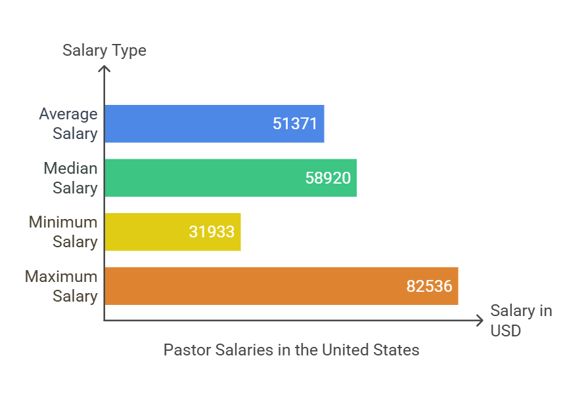The role of a pastor is multifaceted, encompassing spiritual guidance, community leadership, and administrative responsibilities. Their dedication to their congregations often involves long hours and significant personal sacrifice. Understanding how churches pay pastors is crucial for both those seeking pastoral roles and members who contribute financially to their church communities. This article delves into the various factors influencing pastor salaries, funding sources, and the benefits offered to support these vital religious leaders.
This article will explore the key elements that shape pastor compensation, including denomination-specific practices, the impact of church size and location, the influence of experience level, and the diverse funding mechanisms employed by churches. We’ll also examine the additional benefits often provided to pastors, ensuring a comprehensive understanding of their financial well-being within their religious communities.
Pastor Salaries
Pastor salaries vary widely depending on several factors, making it difficult to pinpoint an average figure. Salaries can range from modest sums in smaller congregations to substantial incomes in large, well-established churches. The specific compensation package offered often reflects the pastor’s responsibilities, the church’s financial resources, and local cost of living.
Transparency regarding how churches pay pastors is generally expected within religious communities. Many churches publicly disclose salary ranges for their pastors or provide information about their compensation structure during annual meetings or on their websites. This openness fosters trust and accountability between church leadership and its members.
Negotiating a pastor’s salary typically involves discussions between the church leadership, the pastor-elect, and potentially a denominational representative. Factors such as education, experience, and the specific needs of the congregation are considered during these negotiations to arrive at a mutually agreeable compensation package.
Denomination & Church Size

Different denominations often have established guidelines or expectations regarding how churches pay pastors. Some denominations may set minimum salary levels for their clergy, while others leave compensation decisions more flexible to individual congregations. Larger denominations with centralized structures tend to have more standardized salary ranges, whereas smaller denominations may offer greater autonomy to local churches in determining pastor compensation.
Church size plays a significant role in influencing pastor salaries. Larger churches with substantial membership and financial resources are generally able to offer higher salaries compared to smaller congregations with limited budgets. The number of staff members, the scope of the pastor’s responsibilities, and the church’s overall budget all contribute to determining the salary range for pastors in different-sized churches.
Experience Level
A pastor’s experience level is a crucial factor influencing their compensation. Entry-level pastors with limited experience typically receive lower salaries compared to seasoned clergy with extensive pastoral experience and proven track records. As pastors gain experience, they often take on additional responsibilities, such as leading larger congregations, overseeing staff teams, or engaging in community outreach initiatives, which can justify higher salary levels.
Continuing education and professional development are also considered when determining pastor salaries. Pastors who pursue advanced degrees, attend theological conferences, or engage in specialized training may command higher salaries due to their enhanced skills and knowledge base. Churches often value pastors who demonstrate a commitment to ongoing learning and growth within their field.
Funding Sources

Churches employ various funding mechanisms to support how churches pay pastors. The primary source of income for most churches is tithes, which are regular contributions from members based on a percentage of their income. Donations from church members, special fundraising events, and investments can also contribute to the church’s budget.
Some churches may receive additional funding through grants or endowments, particularly those involved in social outreach programs or community development initiatives. Government subsidies for religious organizations are generally limited and subject to specific regulations.
The financial health of a church directly impacts its ability to compensate pastors adequately. Churches with strong membership engagement, consistent giving patterns, and effective financial management are better positioned to offer competitive salaries and benefits packages to their clergy.
Benefits for Pastors
In addition to salary, churches often provide pastors with various benefits to enhance their well-being and financial security. Housing allowances are common, helping pastors cover the costs of living in a parsonage or renting a suitable residence. Health insurance plans, retirement savings programs, and life insurance policies are also frequently offered to protect pastors and their families.
Some churches may provide additional perks such as paid vacation time, professional development stipends, or childcare assistance. These benefits demonstrate the church’s commitment to supporting its pastors both financially and personally, recognizing the demanding nature of their roles.
Conclusion
Understanding how churches pay pastors is essential for fostering transparency and accountability within religious communities. Salaries are influenced by a complex interplay of factors, including denomination, church size, experience level, and funding sources. Churches strive to provide competitive compensation packages that reflect the value placed on their pastors’ contributions while ensuring their financial well-being.



